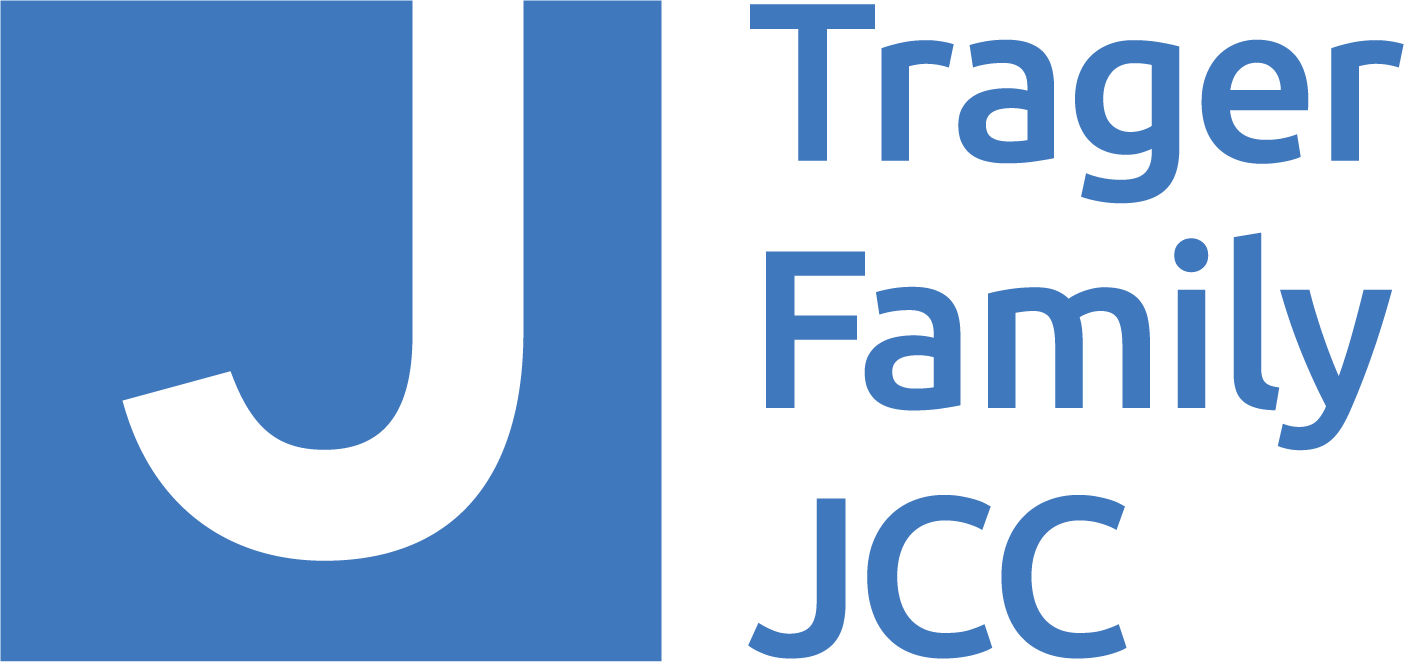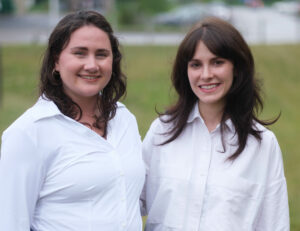By Andrew Adler
Community Editor
One of the most pressing issues regarding the future of Jewish life is how to provide young adults with pathways – and not necessarily traditional ones – to engage with the Jewish life of their community.
The comprehensive Brandeis University-led Study of Jewish Louisville, released last year, found that almost a third of the area’s Jewish adults were age 18-34. They’re emerging from college, beginning new jobs, getting married and starting families.
But to appeal to this cohort, it’s vital to understand from its members what kinds of connections they’re seeking, and what barriers may stand in their way. That’s where the Jewish Federation of Louisville’s Bridget Bard comes in. As Manager of Young Leadership and Engagement, she was hired earlier this year specifically to work with this age group. And because her portfolio’s initial phase — dubbed “Jewish Lou 502.0” – is directly related to the Brandeis study, she’s a natural professional to help elicit answers from her young-adult stakeholders.
Bard was hearing buzz about the study even before she first read it. Following an initial Zoom session, “I saw there was going to be a town hall, and I immediately put it on my calendar to go. I was excited to hear what was going to happen.
“So I went to the session and felt invigorated by the whole thing,” she says. “I thought, ‘Oh my gosh, this is a race to find these new people to engage with, and reintroduce ourselves as a Jewish community.”
Thus inspired, “I even made flyers and went out to PRP (Pleasure Ridge Park) to put them up in coffee shops, and went all around the city saying to people, ‘Hey, did you know that we’re over here?’ I was so excited that I finally lifted my head up a couple of weeks later, and it was a rush to engage with this new information that had just been released to us – to open the floodgates.”
To focus and facilitate its efforts, the Federation team is collaborating with Panoramic Strategy, a Columbus, Ohio-based firm that calls itself a “social purpose consultancy.” The firm, Bard explains, will organize and lead gatherings “to hear what people’s experiences have been, what their stories are, what works and what doesn’t work.” The goal — broadly, is to “build the future of our community together.”
Sara Klein Wagner, president and CEO of the Federation and the Trager Family JCC, emphasizes the collaborative nature of the project.
“The Brandeis Study of Jewish Louisville is truly a gift to our community,” Wagner says. Indeed, “we are not alone in this quest to learn more about our community, and to thoughtfully and purposely plan for the future.”
Testifying to that common imperative, over the past four years, “25 Federations have completed or are in the process of completing demographic studies,” Wagner says. “We are grateful to our partners at the Jewish Heritage Fund for their leadership in helping bring the study to fruition. The question is, what comes next?”
One possible answer emerged this past April in Chicago during a meeting of the Jewish Federations of North America General Assembly.
“Jack Wertheimer, professor of American Jewish History at the Jewish Theological Seminary, shared that we need ‘Jewish Think Tanks,’” Wagner recalls. “He suggested that we need to understand why people are not participating, and why others do participate.”
With Jewish Lou 502.0 as its first initiative, a steering committee is already in place, comprising “the group of people who are going to guide the whole rest of the project,” Bard says. “Then there are our ‘Connectors’ – people who are the best connectors in the community, the ones who can say, ‘Hey, you’ve participated with us before – now we need you to spread the word.’ What we’re hoping for is that our champions can tell 10 of their friends, or at least five of their friends. We want to really expand our reach.”
“Having as diverse a group of people attend the focus groups as possible is the goal,” says steering committee chair Jon Klein. “And it’s a pleasure to find out that there are these self-organizing groups of Jewish friends, and two-faith-family friends, who have formed outside the establishment and recognized institutions in the community.”
Planners are putting together a series of four, three-hour Think Tanks. Two groups of 20-25 members would commit to attend a pair of those sessions through the summer, each meeting to be guided by Panoramic Strategy facilitators.
To encourage unfettered discussions, the Think Tanks will be held “on neutral ground,”
Bard says. “We’re trying to reach more of the folks who are ‘just’ Jewish,” she emphasizes. “They might not be very religious, or they just might not have community” connections.
Bard has begun recruiting like-minded peers to help identify potential Connectors – people like Maya Jamner, a 28-year-old flight attendant with Southwest Airlines who’s moving back to Louisville after an extended stint in Chicago. The two women met earlier this year after a Yom Ha’Shoah event hosted by the Trager Family JCC when Wagner got them together.
Bard made a persuasive pitch. “The way she explained it to me,” Jamner recalls, “was that she’s trying to increase engagement with people who aren’t necessarily affiliated with a synagogue. And as someone who’s been living in Chicago for five years and is strongly in touch with my Jewish identity, but who never became affiliated with a synagogue, that really resonated with me.”
Indeed, “I think there are a lot of young people who are connected with their Jewish identity, but who aren’t doing things the traditional way that our parents did,” Jamner says. “Maybe the pandemic had something to do with that. We got out of the habit of necessarily going to a place you know, once a week, and I feel like a lot of people my age – myself included – are looking at how to find our way in the community.”
The Federation team wants two principal cohorts to participate in the upcoming Think Tanks – areas of inquiry that are dubbed “headlines” “We’re starting out by identifying young adults, ages 23 to 34, with no kids who are Jewish and living in Kentucky,” Bard says. “The other is interfaith families with children 12 and under. That’s where statistics become important. So there were conversations with Matt Boxer, the Brandeis study’s principal researcher, who helped us (understand) the scale of who we were looking for in these populations.”
Recruiting for Think Tank participants began with a “soft launch” during the June 4 Israeli Street Fair at the Trager Family JCC, where Bard had an information table set up. She had conversations like:
‘Did you follow the Brandeis study about Jews in Louisville?’ ‘Oh, I don’t know” about it. “You know, the one where we found out that there are way more Jewish people here then we thought.’”
There were some who, when queried, replied that they’d at least heard about the study. “Either way, there were very few ‘’Not interested,’” Bard says. “So that was really encouraging.”
Fairgoers had the opportunity to fill out interest questionnaires, and at the Trager Family JCC’s front desk, there’s a 502.0 display with a QR code visitors can scan for more information.
“I’m very optimistic that many (prospective participants) will come to the focus groups,” Klein says. “The (Brandeis) study taught us that there is a very high percentage of the community that simply is no longer – or which never was — engaged with (foundational) institutions. If that’s 40 to 60 percent of the community that’s not affiliated with traditional institutions, for this to succeed we’ve got to engage them. It’s an absolute requirement.”
Not surprisingly for someone who’s a professor and Vice Dean for Research at the University of Louisville School of Medicine, Klein is a great believer in data-driven analysis. “We may have a working model – a hypothesis, if you will – of how institutions work, the structure of the Jewish community and what it can do,” he says. “But the great thing of having been a scientist for 40 years is that you find out that the hypothesis is frequently wrong, and that you may have to rethink it.”
Whatever the outcome, Jewish Lou 502.0 is making a case for relevancy – and at the same time, residency.
“I know as I’ve gotten older, wanting to get back in touch with my roots has been important to me,” Jamner says. “And I think that’s the exact type of person that Bridget is looking for.”
To answer a brief interest survey on Jewish Lou 502.0 and express interest in participating in future Think Tanks, you can go online here. You can also contact coordinator Bridget Bard at 502-238-2780, or via email at bbard@jewishlouisville.org




